 W
WThe American Anti-Imperialist League was an organization established on June 15, 1898, to battle the American annexation of the Philippines as an insular area. The anti-imperialists opposed expansion, believing that imperialism violated the fundamental principle that just republican government must derive from "consent of the governed." The League argued that such activity would necessitate the abandonment of American ideals of self-government and non-intervention—ideals expressed in the United States Declaration of Independence, George Washington's Farewell Address and Abraham Lincoln's Gettysburg Address. The Anti-Imperialist League was ultimately defeated in the battle of public opinion by a new wave of politicians who successfully advocated the virtues of American territorial expansion in the aftermath of the Spanish–American War and in the first years of the 20th century.
 W
WEdward Atkinson was an economist, inventor, and a founder of the American Anti-Imperialist League.
 W
WThe Battle for One Destiny is a political theory literature book of 1958 that composes a combined volume of the writings and chiefly editorial articles of Ba'athist leader Michel Aflaq. The book argues that Western imperialism and Zionism are the greatest impediments to pan-Arab unity.
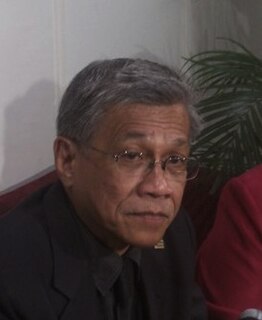 W
WWalden Flores Bello is a Filipino academic, environmentalist, and social worker who served as a member of the House of Representatives of the Philippines. He is a professor of sociology and public administration at the University of the Philippines Diliman, as well as executive director of Focus on the Global South.
 W
WHarpal Brar is an Indian communist politician, writer and businessman, based in the United Kingdom. He is the founder and former chairman of the Communist Party of Great Britain (Marxist–Leninist), a role from which he stood down in 2018.
 W
WBurmese Days is the first novel by English writer George Orwell, published in 1934. Set in British Burma during the waning days of Empire, when Burma was ruled from Delhi as part of British India, it is "a portrait of the dark side of the British Raj." At the centre of the novel is John Flory, "the lone and lacking individual trapped within a bigger system that is undermining the better side of human nature." The novel describes "both indigenous corruption and imperial bigotry" in a society where, "after all, natives were natives—interesting, no doubt, but finally...an inferior people".
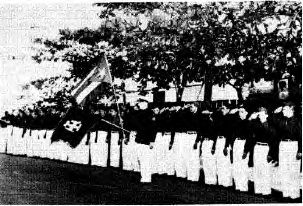 W
WCadets of the Republic, known in Spanish as Cadetes de la República, was a quasi-military youth organization of the Puerto Rican Nationalist Party in the twentieth century. The organization was also referred to as the Liberation Army of Puerto Rico (Ejército Libertador de Puerto Rico)
 W
WFidel Alejandro Castro Ruz was a Cuban revolutionary and politician who served as Prime Minister of Cuba from 1959 to 1976 and President from 1976 to 2008. Ideologically a Marxist–Leninist and Cuban nationalist, he also served as the First Secretary of the Communist Party of Cuba from 1961 until 2011. Under his administration the Republic of Cuba became a one-party communist state; industry and business were nationalized, and state socialist reforms were implemented throughout society.
 W
WSomen Chanda was a Marxist activist, writer and trade union leader of Bengal.
 W
WChin Peng, former OBE, born Ong Boon Hua was a Malayan communist politician, anti-fascist activist and long-time leader of the Malayan Communist Party (MCP) and the Malayan National Liberation Army (MNLA).
 W
WAvram Noam Chomsky is an American linguist, philosopher, cognitive scientist, historian, social critic, and political activist. Sometimes called "the father of modern linguistics", Chomsky is also a major figure in analytic philosophy, and is one of the founders of the field of cognitive science. He is Laureate Professor of Linguistics at the University of Arizona and Institute Professor Emeritus at the Massachusetts Institute of Technology (MIT), and is the author of more than 100 books on topics such as linguistics, war, politics, and mass media. Ideologically, he aligns with anarcho-syndicalism and libertarian socialism.
 W
WThe Evil Empire: 101 Ways That England Ruined the World is a book written by Steven Grasse, the chief executive officer of Philadelphia marketing agency Quaker City Mercantile. It was first published in April 2007 by Quirk Books. In the work the author argues that many of the world's problems were caused by the British Empire and also criticises British culture.
 W
WMuammar Muhammad Abu Minyar al-Gaddafi, commonly known as Colonel Gaddafi, was a Libyan revolutionary, politician and political theorist. He governed Libya as Revolutionary Chairman of the Libyan Arab Republic from 1969 to 1977 and then as the "Brotherly Leader" of the Great Socialist People's Libyan Arab Jamahiriya from 1977 to 2011. He was initially ideologically committed to Arab nationalism and Arab socialism but later ruled according to his own Third International Theory.
 W
WMohandas Karamchand Gandhi, also known as Mahatma Gandhi, was an Indian lawyer, anti-colonial nationalist, and political ethicist, who employed nonviolent resistance to lead the successful campaign for India's independence from British rule, and in turn inspired movements for civil rights and freedom across the world. The honorific Mahātmā, first applied to him in 1914 in South Africa, is now used throughout the world.
 W
WGandhism is a body of ideas that describes the inspiration, vision, and the life work of Mohandas Gandhi. It is particularly associated with his contributions to the idea of nonviolent resistance, sometimes also called civil resistance. The two pillars of Gandhism are truth and nonviolence.
 W
WVõ Nguyên Giáp was an army general in the Vietnam People's Army and a politician. Võ Nguyên Giáp has been called one of the greatest military strategists of the 20th century. He first rose to prominence during World War II, where he served as the military leader of the Viet Minh resistance against the Japanese occupation of Vietnam and also as Defence Minister & Deputy Prime Minister for nearly 44 years. Giáp was a crucial military commander in two wars: the First Indochina War of 1946–1954, and the Vietnam War of 1955–1975, participating in several historically significant battles: Cao Bằng in 1950, Hòa Bình in 1951–1952, Điện Biên Phủ in 1954, the Tết Offensive in 1968, the Easter Offensive in 1972, and the final Ho Chi Minh Campaign of 1975.
 W
WThe Great Satan is a demonizing epithet for the United States of America in Iranian foreign policy statements. Occasionally, these words have also been used toward the government of the United Kingdom.
 W
WErnesto "Che" Guevara was an Argentine Marxist revolutionary, physician, author, guerrilla leader, diplomat, and military theorist. A major figure of the Cuban Revolution, his stylized visage has become a ubiquitous countercultural symbol of rebellion and global insignia in popular culture.
 W
WGuevarism is a theory of communist revolution and a military strategy of guerrilla warfare associated with communist revolutionary Ernesto "Che" Guevara, a leading figure of the Cuban Revolution who believed in the idea of Marxism–Leninism and embraced its principles.
 W
WDavid W. Harvey is a British-born Marxist economic geographer and Distinguished Professor of anthropology and geography at the Graduate Center of the City University of New York (CUNY). He received his PhD in geography from the University of Cambridge in 1961. Harvey has authored many books and essays that have been prominent in the development of modern geography as a discipline. He is a proponent of the idea of the right to the city.
 W
WHegemony or Survival: America's Quest for Global Dominance is a study of the American empire written by the American linguist and political activist Noam Chomsky, a professor at the Massachusetts Institute of Technology. It was first published in the United States in November 2003 by Metropolitan Books and then in the United Kingdom by Penguin Books.
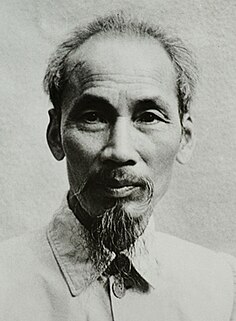 W
WHồ Chí Minh, born Nguyễn Sinh Cung, also known as Nguyễn Tất Thành, Nguyễn Ái Quốc, Bác Hồ, or simply Bác, was a Vietnamese revolutionary and politician. He served as Prime Minister of North Vietnam from 1945 to 1955 and President from 1945 to 1969. Ideologically a Marxist–Leninist, he served as Chairman and First Secretary of the Workers' Party of Vietnam.
 W
WRonald J. Horvath has made contributions to the study of colonialism, African development, and urban geography of Sydney, Los Angeles, Detroit and Addis Ababa.
 W
WThe Houthi movement, officially called Ansar Allah and colloquially simply Houthis, is an Islamic political and armed movement that emerged from Sa'dah in northern Yemen in the 1990s. The movement was called Houthis because its founder is from the Houthi tribe. They are of the Zaidi school, though the movement also includes Sunnis. Under the leadership of Hussein Badreddin al-Houthi, the group emerged as an opposition to former Yemeni president Ali Abdullah Saleh, whom they charged with massive financial corruption and criticized for being backed by Saudi Arabia and the United States at the expense of the Yemeni people and Yemen's sovereignty. Resisting Saleh's order for his arrest, Hussein was killed in Sa'dah in 2004 along with a number of his guards by the Yemeni army, sparking the Houthi insurgency in Yemen. Since then, except for a short intervening period, the movement has been led by his brother Abdul-Malik al-Houthi.
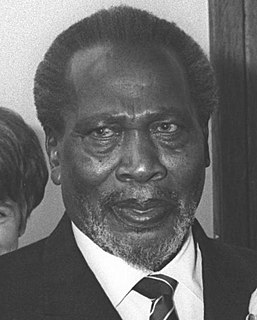 W
WJomo Kenyatta was a Kenyan anti-colonial activist and politician who governed Kenya as its Prime Minister from 1963 to 1964 and then as its first President from 1964 to his death in 1978. He was the country's first indigenous head of government and played a significant role in the transformation of Kenya from a colony of the British Empire into an independent republic. Ideologically an African nationalist and conservative, he led the Kenya African National Union (KANU) party from 1961 until his death.
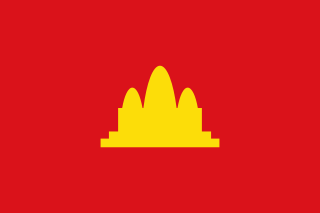 W
WThe Khmer Rouge is the name that was popularly given to members of the Communist Party of Kampuchea (CPK) and by extension to the regime through which the CPK ruled Cambodia between 1975 and 1979. The name had been coined in the 1960s by Norodom Sihanouk to describe his country's heterogeneous, communist-led dissidents, with whom he allied after his 1970 overthrow.
 W
WKim Il-sung or Kim Il Sung was the founder of North Korea, which he ruled from the country's establishment in 1948 until his death in 1994. He held the posts of Premier from 1948 to 1972 and President from 1972 to 1994. He was also the leader of the Workers' Party of Korea (WPK) from 1949 to 1994. Coming to power after the end of Japanese rule in 1945, he authorized the invasion of South Korea in 1950, triggering an intervention in defense of South Korea by the United Nations led by the United States. Following the military stalemate in the Korean War, a ceasefire was signed on 27 July 1953. He was the third longest-serving non-royal head of state/government in the 20th century, in office for more than 45 years.
 W
WAgafya "Halyna" or "Galina" Andreyevna Kuzmenko Makhno was a Ukrainian teacher and anarchist, and the wife of Nestor Makhno.
 W
WThe Last Empress is a South Korean television series starring Jang Na-ra, Choi Jin-hyuk, Shin Sung-rok, Lee Elijah, and Shin Eun-kyung. It aired on SBS Wednesdays and Thursdays at the 22:00 KST time slot from November 21, 2018 to February 21, 2019 for 52 episodes.
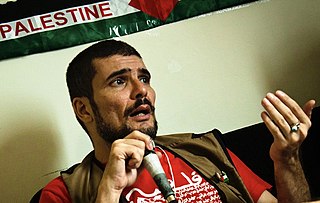 W
WCarlos Latuff is a Brazilian political cartoonist. His work deals with themes such as anti-Zionism, anti-globalization, anti-capitalism, and opposition to U.S. military interventions. He is best known for his images depicting the Israeli–Palestinian conflict and the Arab Spring events.
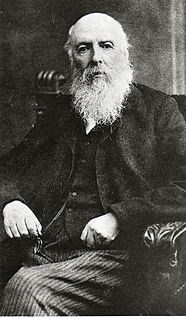 W
WSir Wilfrid Lawson, 2nd Baronet was an English temperance campaigner and radical, anti-imperialist Liberal Party politician who sat in the House of Commons variously between 1859 and 1906. He was recognised as the leading humourist in the House of Commons.
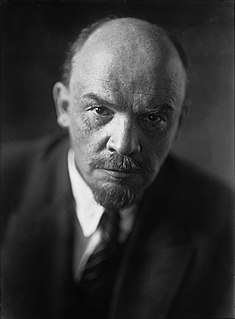 W
WVladimir Ilyich Ulyanov, better known by his alias Lenin, was a Russian revolutionary, politician, and political theorist. He served as the head of government of Soviet Russia from 1917 to 1924 and of the Soviet Union from 1922 to 1924. Under his administration, Russia, and later the Soviet Union, became a one-party Marxist–Leninist state governed by the Communist Party of the Soviet Union. Ideologically a Marxist, he developed a variant of it known as Leninism.
 W
WPatrice Émery Lumumba was a Congolese politician and independence leader who served as the first Prime Minister of the independent Democratic Republic of the Congo from June until September 1960. He played a significant role in the transformation of the Congo from a colony of Belgium into an independent republic. Ideologically an African nationalist and pan-Africanist, he led the Congolese National Movement (MNC) party from 1958 until his assassination.
 W
WNestor Ivanovych Makhno, commonly known as Bat'ko Makhno, was a Ukrainian anarchist revolutionary and the commander of an independent anarchist army in Ukraine from 1917–21.
 W
WMao Zedong, also known as Chairman Mao, was a Chinese communist revolutionary who was the founder of the People's Republic of China (PRC), which he ruled as the chairman of the Communist Party of China from its establishment in 1949 until his death in 1976. Ideologically a Marxist–Leninist, his theories, military strategies, and political policies are collectively known as Maoism.
 W
WKarl Heinrich Marx was a German philosopher, economist, historian, sociologist, political theorist, journalist and socialist revolutionary. Born in Trier, Germany, Marx studied law and philosophy at university. He married Jenny von Westphalen in 1843. Due to his political publications, Marx became stateless and lived in exile with his wife and children in London for decades, where he continued to develop his thought in collaboration with German thinker Friedrich Engels and publish his writings, researching in the reading room of the British Museum. His best-known titles are the 1848 pamphlet The Communist Manifesto and the three-volume Das Kapital (1867–1883). Marx's political and philosophical thought had enormous influence on subsequent intellectual, economic and political history. His name has been used as an adjective, a noun and a school of social theory.
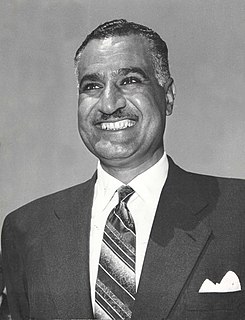 W
WGamal Abdel Nasser Hussain was an Egyptian politician who served as the second President of Egypt, from 1954 until his death in 1970. Nasser led the 1952 overthrow of the monarchy and introduced far-reaching land reforms the following year. Following a 1954 attempt on his life by a Muslim Brotherhood member, he cracked down on the organization, put President Mohamed Naguib under house arrest and assumed executive office. He was formally elected president in June 1956.
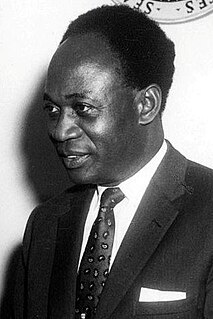 W
WKwame Nkrumah was a Ghanaian politician and revolutionary. He was the first Prime Minister and President of Ghana, having led the Gold Coast to independence from Britain in 1957. An influential advocate of pan-Africanism, Nkrumah was a founding member of the Organization of African Unity and winner of the Lenin Peace Prize from the Soviet Union in 1962.
 W
WJulius Kambarage Nyerere was a Tanzanian anti-colonial activist, politician, and political theorist. He governed Tanganyika as Prime Minister from 1961 to 1962 and then as President from 1963 to 1964, after which he led its successor state, Tanzania, as President from 1964 to 1985. A founding member of the Tanganyika African National Union (TANU) party—which in 1977 became the Chama Cha Mapinduzi party—he chaired it until 1990. Ideologically an African nationalist and African socialist, he promoted a political philosophy known as Ujamaa.
 W
WPan-Celticism, also known as Celticism or Celtic nationalism is a political, social and cultural movement advocating solidarity and cooperation between Celtic nations and the modern Celts in North-Western Europe. Some pan-Celtic organisations advocate the Celtic nations seceding from the United Kingdom and France and forming their own separate federal state together, while others simply advocate very close cooperation between independent sovereign Celtic nations, in the form of Irish nationalism, Scottish nationalism, Welsh nationalism, Breton nationalism, Cornish nationalism and Manx nationalism.
 W
WPol Pot was a Cambodian revolutionary and politician who governed Cambodia as the Prime Minister of Democratic Kampuchea between 1975 and 1979. Ideologically a Marxist–Leninist and a Khmer nationalist, he was a leading member of Cambodia's communist movement, the Khmer Rouge, from 1963 until 1997 and served as the General Secretary of the Communist Party of Kampuchea from 1963 to 1981. Under his administration, Cambodia was converted into a one-party communist state governed according to Pol Pot's interpretation of Marxism–Leninism.
 W
WSayyid Ibrahim Husayn Shadhili Qutb, known popularly as Sayyid Qutb, was an Egyptian author, educator, revolutionary, Islamic theorist, poet, and a leading member of the Egyptian Muslim Brotherhood in the 1950s and 1960s. In 1966, he was convicted of plotting the assassination of Egyptian president Gamal Abdel Nasser and was executed by hanging.
 W
WThe Revolutions of 1917–1923 was a revolutionary wave that included political unrest and revolts around the world inspired by the success of the Russian Revolution and the disorder created by the aftermath of World War I. The uprisings were mainly socialist or anti-colonial in nature. Many attempted socialist revolts failed to have a long-term impact.
 W
WFranklin Delano Roosevelt, often referred to by his initials FDR, was an American politician who served as the 32nd president of the United States from 1933 until his death in 1945. A member of the Democratic Party, he won a record four presidential elections and became a central figure in world events during the first half of the 20th century. Roosevelt directed the federal government during most of the Great Depression, implementing his New Deal domestic agenda in response to the worst economic crisis in U.S. history. As a dominant leader of his party, he built the New Deal Coalition, which defined modern liberalism in the United States throughout the middle third of the 20th century. His third and fourth terms were dominated by World War II, which ended shortly after he died in office.
 W
W"Run to the Hills" is a song by the English heavy metal band Iron Maiden. It was released as their sixth single and the first from the band's third studio album, The Number of the Beast (1982). It is their first single with Bruce Dickinson as vocalist. Credited solely to the band's bassist, Steve Harris, although significant contributions were made by Dickinson, it remains one of their most popular songs, with VH1 ranking it No. 27 on their list of the 40 Greatest Metal Songs and No. 14 on their list of the Greatest Hard Rock Songs.
 W
WAlbert Schweitzer was an Alsatian polymath. He was a theologian, organist, writer, humanitarian, philosopher, and physician. A Lutheran, Schweitzer challenged both the secular view of Jesus as depicted by the historical-critical method current at this time, as well as the traditional Christian view. His contributions to the interpretation of Pauline Christianity concern the role of Paul's mysticism of "being in Christ" as primary and the doctrine of Justification by Faith as secondary.
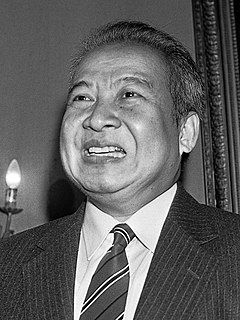 W
WNorodom Sihanouk was a Cambodian politician who led Cambodia in various capacities throughout his political career, but most often as the King of Cambodia. In Cambodia, he is known as Samdech Euv. During his lifetime, Cambodia was variously called the French Protectorate of Cambodia, the Kingdom of Cambodia (1953–70), the Khmer Republic (1970–75), Democratic Kampuchea (1975–79), the People's Republic of Kampuchea (1979–93), and again the Kingdom of Cambodia.
 W
WThe Sons of al Mahrah is a Yemeni protest movement that emerged from Al Mahrah Governorate in 2018. It is led by former governor, Sheikh Ali Salem Al-Harizi. The movement protests the "Saudi occupation policy" in the al-Mahrah Governorate and the UAE occupation of Socotra.
 W
WJoseph Vissarionovich Stalin was a Georgian revolutionary and Soviet politician who ruled the Soviet Union from the mid-1920s until his death in 1953. During his years in power, he served as both General Secretary of the Communist Party of the Soviet Union (1922–1952) and Chairman of the Council of Ministers of the Soviet Union (1941–1953). Despite initially governing the country as part of a collective leadership, he ultimately consolidated power to become the Soviet Union's de facto dictator by the 1930s. A communist ideologically committed to the Leninist interpretation of Marxism, Stalin formalised these ideas as Marxism–Leninism, while his own policies are known as Stalinism.
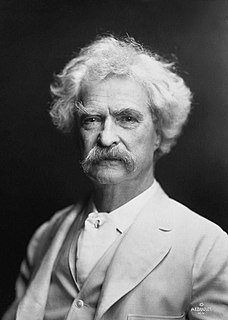 W
WSamuel Langhorne Clemens, known by his pen name Mark Twain, was an American writer, humorist, entrepreneur, publisher, and lecturer. He was lauded as the "greatest humorist the United States has produced," and William Faulkner called him "the father of American literature". His novels include The Adventures of Tom Sawyer (1876) and its sequel, the Adventures of Huckleberry Finn (1884), the latter often called "The Great American Novel".
 W
WGennady Andreyevich Zyuganov is a Russian politician, who has been the General Secretary of the Communist Party and served as Member of the State Duma since 1993. He is also the Chair of the Union of Communist Parties – Communist Party of the Soviet Union (UCP-CPSU) since 2001 and a member of the Parliamentary Assembly of the Council of Europe since 1996.